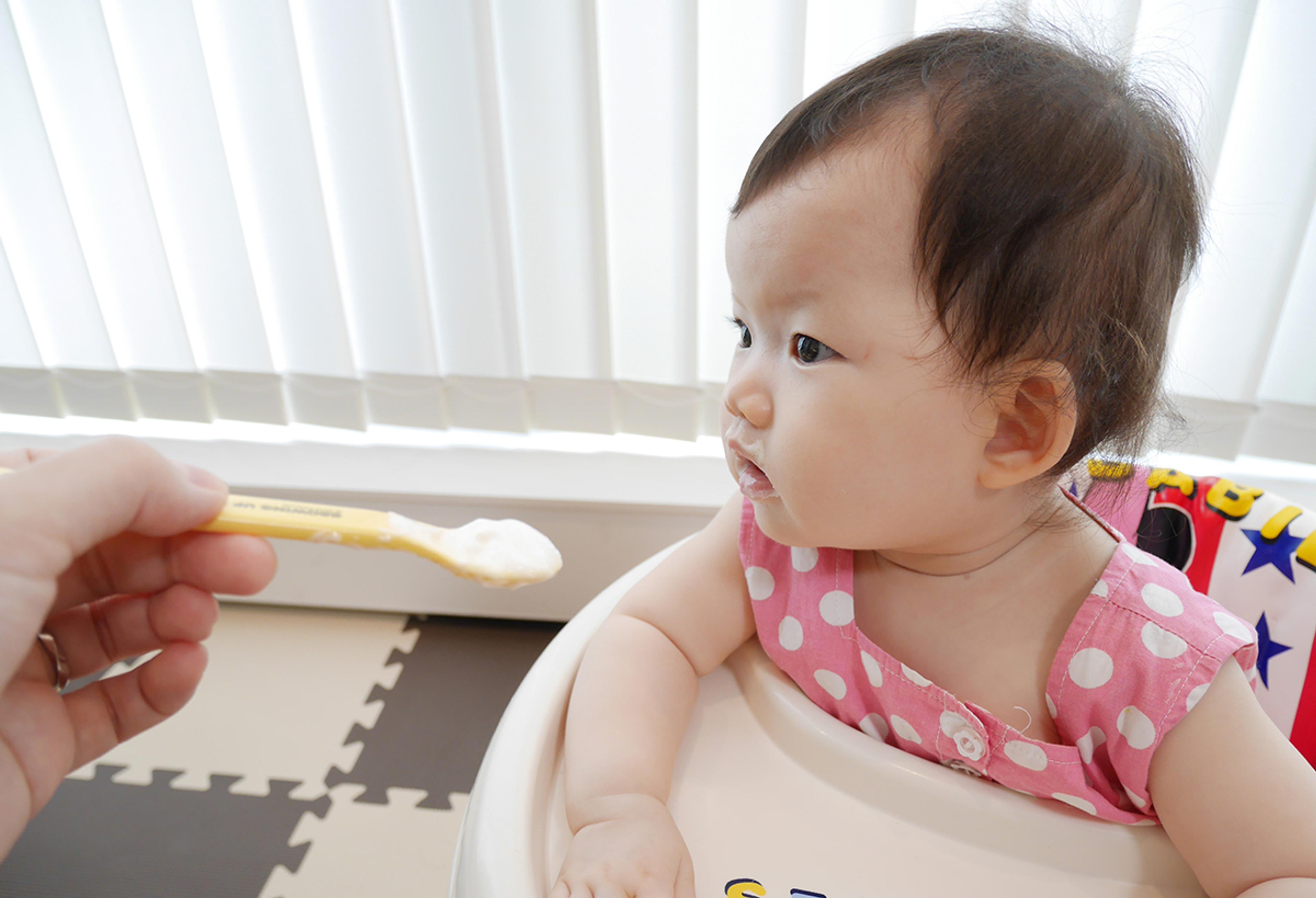
Food
When Can My Baby Have Yogurt?
Once baby is sitting upright without assistance, holding her head up for support, and showing interest in what mama or dada is eating, it may be time to consult with your doctor to decide if your baby is ready to eat solid food.
As a pediatric registered dietitian-nutritionist, I have worked with many families who are unsure about which foods are appropriate for little ones and which should be avoided. In my experience, dairy foods like yogurt have an important place in a baby’s diet. While certain dairy foods like cow’s milk, chocolate milk and raw or unpasteurized cheese should not be offered to babies until after 12 months of age, other dairy foods like yogurt are a perfect first food.
When Can I Transition Baby to Solid Foods?
While every baby is different, most babies get the green-light to start solids between 4 and 6 months of age. When to start introducing solid foods is often based on your baby’s developmental milestones and not simply on a date on a calendar, so always follow your health care provider’s recommendation.
Some developmental signs that indicate baby is ready to try solid foods include:
- Baby is able to sit upright without being supported.
- Baby shows interest in food when a caregiver is eating.
- Baby can hold her head up by herself.
- Baby no longer has the tongue thrust reflex that she had when she was younger and was breast or bottle feeding.
The medical literature suggests that introducing solid foods too early may lead to increased risk of chronic disease, as well as increased risk of diarrhea, as baby’s gut may not be fully developed. On the other hand, introducing solids too late may increase feeding difficulties. Your health care provider will encourage you to set up the high chair when the time is right.
When Can I Feed My Baby Yogurt?
Yogurt is a great first food for baby and can be offered at six months, as long as she is developmentally ready for solid foods according to joint guidelines set forth by the American Academy of Pediatrics and the National Dairy Council.
As a cultured food like cheese, the proteins and lactose in yogurt have already been broken down and are typically gentle on baby’s tummy. Yogurt also provides baby with essential vitamins and minerals that supports her growth, as well as live probiotics to support a healthy gut and immune system.
If you are concerned about lactose intolerance in your baby, it is important to note that this condition is actually very uncommon in infants, and symptoms typically develop closer to the age of 3. In addition, lactose intolerance should not be confused with a milk protein allergy. If your baby has a confirmed milk protein allergy, they should not be offered yogurt. It’s always a good idea to consult with your health care provider before introducing a food if you have any concerns.
Related: When can my baby have cow’s milk, cheese or eggs?
What to Look For
Not all yogurts are created equally. While it may be tempting to grab the neon-blue-colored yogurt in cute packaging covered with cartoon characters, it’s a better choice to start baby off simply.
Here are some quick tips to keep in mind when selecting yogurt for your baby.
Choose unsweetened (plain), unflavored yogurt.
It is important to note that babies should only be offered unsweetened, plain, unflavored yogurt as a first food. Babies should not be provided with artificial colors, flavors, or added sugars, so choosing an unflavored and unsweetened yogurt is the best choice.
Choose whole milk yogurt.
Dietary fats are important for a baby’s brain development. In fact, babies should be getting about 50% of their calories from dietary fat. Offering whole-milk yogurt instead of fat-free or low-fat yogurt supports baby’s nutritional needs at this age.
Choose yogurt that comes from pasture-raised milk.
Milk from pasture-raised cows contains higher levels of healthy fats like omega-3 fatty acids and conjugated linoleic acid (CLA). In fact, a recent study published in the Journal of Food Science and Nutrition showed grass-fed milk contained 147% more omega-3 and 125% more CLA than the milk of cows fed grain-focused diets. These nutrients come through in the yogurt too.
Choose certified organic yogurt.
Organic yogurt is always produced without antibiotics, synthetic hormones, toxic pesticides, or GMOs. (What does certified organic mean?)
Choose pasteurized yogurt.
Pasteurization is important to ensure the food is safe. Yogurt is pasteurized before cultures are added to ensure the yogurt retains its probiotic benefits.

Making your own yogurt out of Organic Valley pasture-raised whole milk ticks all the boxes above, and it's much simpler than most people think! Our recipe for Homemade Yogurt provides both Instant Pot and stovetop instructions. Try it out and let us know how your baby likes it by tagging @OrganicValley on Instagram!
Tips for Introducing Yogurt to Your Baby
Whole-milk, unsweetened and organic yogurt is the perfect texture for babies to safely explore the sensation of eating solid food, and no preparation or equipment is needed (other than a bib and napkins to catch the adorable mess that will surely ensue!). Simply put some yogurt on a baby spoon and bring the spoon close to your baby’s mouth.
When you’re ready to introduce different flavors of food, add some real pureed fruits or vegetables to the plain yogurt to offer some flavor variety to your baby. The combination of produce with yogurt will give your baby a nice balance of vitamins, minerals, carbohydrates, protein, healthy fats and probiotics.
If you are practicing baby-led weaning, you can simply place a dollop of yogurt on your baby’s plate and watch her self-feed. In the summertime or if your baby is teething, you can freeze yogurt on a cookie sheet and offer your child this homemade “yogurt bark” for a yummy treat that is also soothing on her sore gums.
Bottom Line
Yogurt is a perfect first food for babies around the time they reach 6 months of age. Choosing plain, organic yogurt for your little one will provide her with a nutritious food that has the perfect texture and nutritional profile for those tiny tummies and growing bodies.
Lauren Manaker is an award-winning registered dietitian and book author. After spending over 15 years working in health care and industry, she started a consulting business focusing on reproductive, pediatric and women’s health. Lauren resides in Charleston, South Carolina, with her husband and young daughter. In her spare time, she can be found enjoying an outdoor oyster roast in the cooler months, doing anything on the water in the warmer months, and practicing yoga year-round.
Related Articles
- Tags:
- organic nutrition,
- family & kids
















